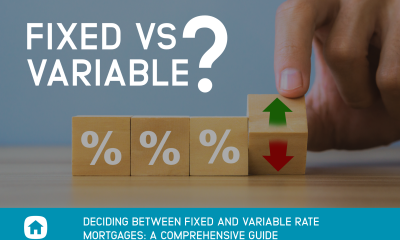We’re in a crisis and everyone is
panicking. While it is a scary time, it may also be the right time to look at
your finances and reassess how to handle your debt.
Consolidating your debt with a mortgage refinance, maybe the best way to protect your finances from COVID-19. Get rid of high-interest credit cards, eliminate a pesky car loan and level out your monthly payments will make riding out COVID-19 much easier.
If you are worried about losing your job, it’s almost imperative that you do this now because you won’t be able to qualify for a refinance without a job and that could leave you in even more financial distress later.
No one can predict what the
aftermath of COVID-19 is going to look like. We hope that all businesses make
it, but in all reality, that may not happen.
If you’re at the point where you
aren’t sure about what to expect, it’s best to consolidate your debt now. Here’s
why:
- You’ll get access to a lower interest rate
- You’ll pay the debt off faster if you follow a few simple strategies
- You’ll only have one bill to manage rather than multiple bills
- Far less stress, and less to worry about while dealing with COVID-19
If you wait until you lose your job or your hours are cut, you may not qualify for the refinance.
That’s why now is the prime time to act. If you have the equity in your home (you owe less than the home is worth), you can use that equity to your advantage, consolidating your debt and making the most of your finances during a difficult time in your life.
Another benefit of refinancing now when you still have a job is the chance to be proactive. If you have enough equity in your home you can consider home much you will need to protect yourself when you don’t have a job.
This is a perfect time to look closely at your budget, assess your spending, and see how much money you’ll need to get through the next few months or even longer because we cannot predict how long this will go on.
To figure out how much you need:
- Add up all your current debts
- Carefully consider your upcoming expenses
You’ll need these two numbers to
figure out how much you should refinance. The total of your debts is an easy
number to figure out. You can wrap those expenses right into your mortgage.
What you also want to consider though, is your upcoming expenses.
Think about anything big coming up, such as tax liabilities, insurance payments, association dues, or even things like a major medical expense you’re anticipating or a home renovation.
You should even consider topping up your saving to give you 3 months of savings to protect you if your income is interrupted because of COVID-19.
Using Your Debt Consolidation the
Right Way
Now that you know how much you need,
here’s a little trick to help make sure you get the most out of your refinance.
You have to use your debt consolidation the right way. If you just refinance your
mortgage and include the debt, but don’t make the right payment, you’re right
back at square one.
Sure, you lowered your monthly
payment, but you extend the term of the loan.
For example, if you wrap all of your high-interest debt into your mortgage and you take a 30-year term, you get a nice, low monthly payment. It feels great, right? You’re saving money every month so you think you’re ahead of the game.
Here’s the problem, though. You’ve now dragged out the payments over 30 years. This means you’re paying only a part of the principal every month. If you take the full 30 years to pay off the debt, you’ll pay thousands of dollars in extra interest that you could have avoided.
Just how could you avoid the extra
interest? You have to be methodical about your payments.
Rather than paying the minimum
required mortgage payment, you must pay the same amount you paid when you had
each separate debt (each credit card payment plus the mortgage payment). Your
payment should be the same; you just make the one payment to your mortgage
company rather than writing multiple checks to each creditor.
This allows you to take full advantage
of the lower rate you can get on your mortgage, and truly saves you interest.
But of course, this only applies if you
can make ends meet.
If you need a little extra protection!
During the COVID-19 crisis, you may wish to make that minimum payment you can, spread your payment out over as long as you can. In Canada, that’s 30 years!
But try to make it as temporary as possible. The sooner that you get back to making your regular payments, the sooner you’ll get yourself out of debt and saving money on the debt you consolidated.
We don’t want to protect against one problem to just create another one by paying more interest over a longer period.
So write down your current monthly payments, remember it, and work towards paying that amount again.
COVID-19 has left us all wondering
what’s next. Our time in quarantine is giving everyone time to reassess their
situation and plan for the future, no matter how unsure they are about it.
Wouldn’t you rather be prepared for the worst and walk away unscathed than find out in the midst of the entire thing that you could have taken steps to avoid financial destruction?
Now’s the time to get prepared and the best way may just be debt consolidation.
Remember, if you don’t lose your job, you still get the benefit of saving on the interest costs on your debts, especially if you follow the ‘right payment method’ to ensure that you save on interest costs and get yourself out of debt faster.
The choice is ultimately up to you, but it doesn’t hurt to reach out to me and we can review your situation together, determine if even possible to consolidate your debt and then decide if this is the right thing to do.
COVID-19 is affecting all of us, don’t be afraid to reach for help, after all, we are all in this together.

 Buying a Home5 years ago
Buying a Home5 years ago
 Credit6 years ago
Credit6 years ago
 Business4 years ago
Business4 years ago
 5 Mortgage Secrets7 years ago
5 Mortgage Secrets7 years ago
 Buying a Home6 years ago
Buying a Home6 years ago
 5 Mortgage Secrets6 years ago
5 Mortgage Secrets6 years ago
 News12 months ago
News12 months ago
 Business4 years ago
Business4 years ago





